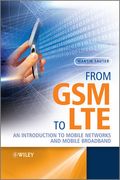Are you already back from vacation? If so, you might want to have a look at the program of the Mobilware 2011 conference being held in London this year from the 22nd to the 24th of June. As you'll see in the scope and topics overview below it's about advances in communication middleware, mobile operating systems, networking protocols and applications. So just my thing 🙂
The call for paper ends February the 1st, so if you have an interesting paper to propose, you have a couple of weeks from now to send your proposal. It would be great to see you there!
Conference Scope
The advances in wireless communication technologies and the proliferation of mobile devices have enabled the realization of intelligent environments for people to communicate with each other, interact with information-processing devices, and receive a wide range of mobile wireless services through various types of networks and systems everywhere, anytime. A key enabler of these pervasive and ubiquitous connectivity environments is the advancement of software technology in various communication sectors, ranging from communication middleware and operating systems to networking protocols and applications.
Topics
The conference solicits original technical papers, not previously published and not currently under review for publication elsewhere. Topics of interest include but are not limited to:
- New middleware concepts for mobile devices
- Cross platform application development
- Open terminal and network APIs
- End-to-end architectures for seamless service provisioning and deployment
- Integration of heterogeneous wired and wireless networks and frequency bands
- Interworking of mobile applications in mobile cloud environments
- QoS awareness, adaptation, and fault-tolerance of mobile services
- Opportunistic and delay-tolerant mobile and wireless networking
- Location-aware and context-aware networking and computing
- Energy-efficient applications and services and OS air interface management
- Mobility and handoff management
- Location and tracking supports and services
- Human-computer interface and portable 3D graphics for mobile devices
- Novel applications and communication protocols for wireless sensor networks, vehicular networks, and home networks
- Modeling, simulation, and performance evaluation of mobile wireless systems and services
- Trustworthiness, security, and privacy of mobile and wireless systems

